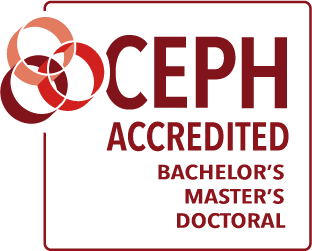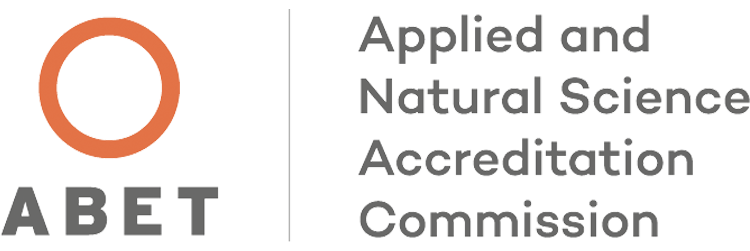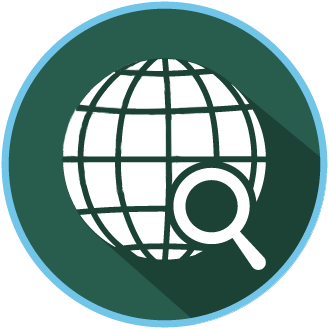Learn to Advance Health at Tulane University
Public Health Degrees That Empower Your Career Impact
Join the Next Wave of Public Health Leaders
At Tulane University Celia Scott Weatherhead School of Public Health and Tropical Medicine, we believe that equity-minded leaders drive transformational solutions. Our online public health degree programs are built for early to mid-career professionals who want to dedicate their lives in service to public health. From chronic infectious disease and physical and mental health to local and global issues, students learn how to assess and address health risks and their implications for social justice and meaningful change.
Tulane’s online public health students and alumni believe the health of the individual relates to the well-being of the community, and they are driven to innovate and create healthier communities around the world.
Accreditation

Tulane University Celia Scott Weatherhead School of Public Health and Tropical Medicine has been accredited since 1947, and all current programs are accredited by the Council on Education for Public Health (CEPH).

Since 1996, the MSPH in Industrial Hygiene has been accredited through the Applied and Natural Science Accreditation Commission of ABET, an accrediting agency for programs in applied science, computing, engineering, and engineering technology.
Programs at a Glance
MPH in Community Health Sciences
Focus on community health equity while developing the necessary skills to become an innovative public health professional.
Master of Science in Health Security
The MS in Health Security is designed to bridge public health, emergency response, and policy, ensuring you’re well-prepared for real-world challenges.
MSPH in Industrial Hygiene
Develop the analytical methodologies to identify and mitigate potential workplace hazards as you build more efficient health and safety protocols.
Master of Health Administration
Hone the organizational strategies and tactics to lead systemic changes in healthcare settings that make care more accessible and equitable.

DrPH in Leadership in Social and Behavioral Sciences
Become equipped with a more focused perspective on leadership, equity, and advocacy to enact meaningful change across communities.
Interested in studying on our campus in New Orleans? Learn more about our on-ground programs on the Tulane University Celia Scott Weatherhead School of Public Health and Tropical Medicine website.
Celia Scott Weatherhead School of Public Health and Tropical Medicine
As stewards of the first school of public health in the United States, Tulane University Celia Scott Weatherhead School of Public Health and Tropical Medicine cultivates independent thinkers, innovative leaders, fierce advocates, and accomplished scholars. From the neighborhoods of New Orleans to communities worldwide, we conduct research and collaborate with our partners to ensure that all of humanity has an equitable opportunity to be healthy and pursue optimal well-being.
School Highlights
Storied History
We were the first school of public health in the U.S. and the nation’s only combined school of public health and tropical medicine.
New Orleans Influence
Our programs feature practical, experiential learning inspired by the vibrant and culturally diverse community of New Orleans.
Broad Impact
The school is dedicated to addressing the complex health issues of the South and is also well established globally in sustainable research and practice.

Ranked 10th
We’re ranked 10th among more than 60 schools of public health, according to the U.S. News & World Report.
Practical Learning
Our Applied Practice Experiences allow you to apply lessons from the classroom in a real-world work setting before you even leave your program.
Field-tested Faculty
Our faculty members are field-tested, experienced public health professionals who use their experiences to craft innovative, informed curricula.
Community-informed
Our programs focus on creating community-informed and socially conscious public health practitioners.
Graduate Success
An unprecedented 99.7 percent of our graduates are working, volunteering, or continuing education within one year of graduation.
Apply Your Passion To Practice
You can see the change you want to make in your community. But first, you have to get the applicable skills to make an impact. At Tulane, our Applied Practice Experience (APE) requirement allows you to develop real-world competencies in a supervised practice setting of your choosing.
The APE can be completed in your local area, and you can choose to work at your current employer as long as your practicum role is different from your current job — perfect for career-changers or shifters. If you need assistance with placement, our dedicated team is here to help you find a match that aligns with your career goals.
| Scholarships |
| Looking for scholarship opportunities? If you complete the application by the priority deadline and meet our criteria, you could receive $20,000 or more in merit-based awards. More than half of new students receive some form of merit-based scholarship. |
Our Areas of Impact
Social, Behavioral, and Population Sciences
The Department of Social, Behavioral, and Population Sciences prepares future generations of highly skilled, socially conscious, and culturally sensitive public health professionals for careers in program development, research, evaluation, and community–based health. The department’s central goal is the advancement of health equity.
Biostatistics and Data Science
The Department of Biostatistics and Data Science teaches students how to develop data-driven methodological research projects and communicate their findings so healthcare practitioners can advance their care.
Health Policy and Management
The Department of Health Policy and Management prepares future healthcare leaders to improve care delivery services, increase access to care, reduce health disparities, and advance healthcare policy worldwide.


Environmental Health Sciences
The health of communities is inextricably linked to the environment, so the Department of Environmental Health Sciences educates public health professionals to address the environment’s impact on the health of populations around the globe.
Epidemiology
The Department of Epidemiology prepares aspiring public health professionals to become disease detectives with the focus, methodology, and creativity needed to uncover the most actionable — and life-saving — insights on diseases and their spread.
Tropical Medicine
The Department of Tropical Medicine creates public health professionals who are prepared to address the clinical, laboratory, and evidence-based approaches to prevent and control tropical diseases.
International Health and Sustainable Development
The Department of International Health and Sustainable Development is focused on improving the health and well-being of vulnerable populations around the world by eliminating health inequities and promoting human rights and social justice for all by being a global leader and partner in capacity strengthening, research, service, and advocacy.
“Our online degrees will offer an exciting, interdisciplinary approach to public health with a focus on leadership and health equity. It is my intent to become the world’s preeminent source for online public health education.”
Thomas A. LaVeist, PhD
DEAN AND WEATHERHEAD PRESIDENTIAL CHAIR IN HEALTH EQUITY